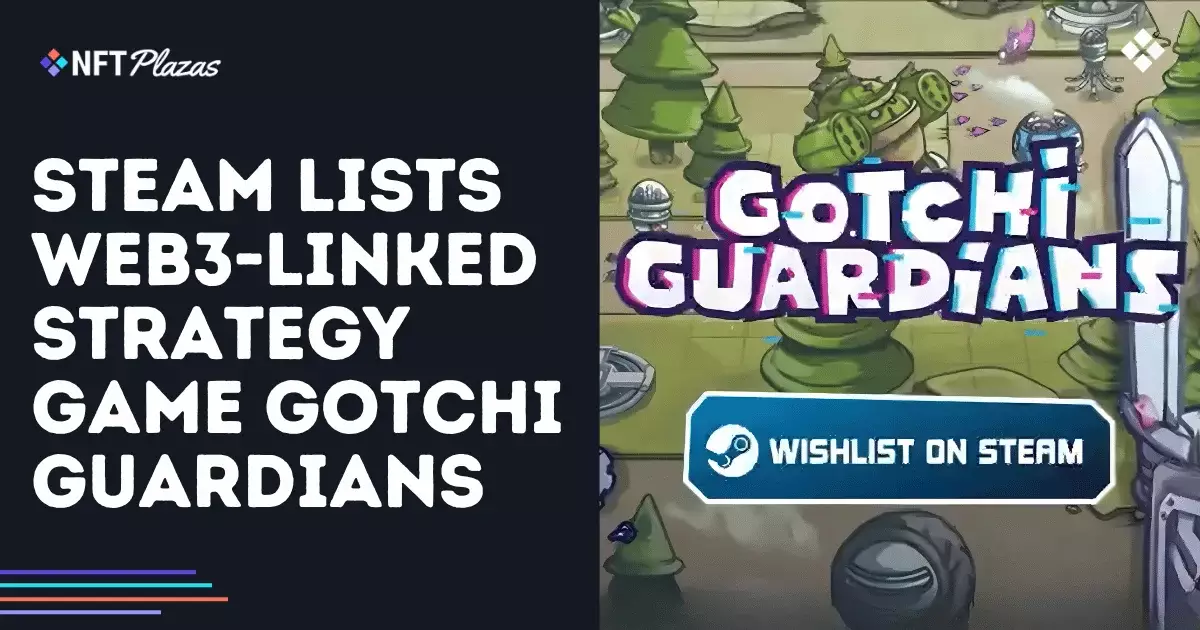In recent months, the gaming industry has been flooded with headlines touting the supposed revolutionary nature of integrating blockchain technology into gaming. Titles like Gotchi Guardians, tied to the popular Aavegotchi ecosystem, are branded as innovative, but in essence, they represent a morally ambiguous pursuit masked as progress. The core of this hype rests on a fragile veneer: blockchain, and by extension NFTs, are purportedly enriching gaming experiences, when in truth, they often distract from meaningful gameplay and exploit players’ desire for technological novelty. This approach falsely promises decentralization, ownership, and economic empowerment, yet it often delivers exclusivity, monetization, and superficial engagement.
What’s troubling about titles like Gotchi Guardians isn’t merely their content but the underlying ideology they propagate. These games, developing in tandem with blockchain ecosystems, are increasingly designed to normalize crypto transactions as part of everyday leisure, subtly shifting the cultural perception of gaming from pure entertainment to a speculative playground. The fact that Gotchi Guardians will include optional NFT cosmetic overlays and cryptocurrency payments—cost-free for gameplay—may seem benign at first glance, but these features serve as gateways for players to become acclimated to an ecosystem that benefits developers and investors more than the players themselves.
Fragmenting Player Community and Diluting Game Quality
The integration of blockchain within traditional gaming platforms fundamentally alters the dynamics of player engagement. In the case of Gotchi Guardians, the game promises multiplayer battles amid waves of enemies, but the inclusion of blockchain assets introduces a new layer of complexity—and division. Players with NFTs could have access to exclusive cosmetic skins, subtly creating a tiered community based on wealth rather than skill. This undermines the egalitarian spirit of multiplayer gaming, where success should depend solely on strategy, skill, and teamwork.
Moreover, the reliance on blockchain payments with tokens like $GHST, even if optional, raises questions about economic stability within the game. It invites a speculative environment, encouraging players to invest real money into digital assets with questionable long-term value. This tilt towards monetization weaponizes the social aspect of gaming, transforming it into a marketplace that fosters greed and short-term gains over genuine player satisfaction. The danger lies in normalizing microtransactions linked to blockchain, which could seep into even non-NFT elements, subtly shifting the industry’s focus from quality gameplay to profit extraction.
Questionable Long-Term Viability and Developer Integrity
Pixelcraft Studios’ roadmap indicates ongoing support and expanding content, but the sustainability of such a model remains dubious. The core premise—layering blockchain features onto a fun multiplayer tower defense—may sound appealing, but it risks becoming a passing fad, particularly given the volatile nature of crypto markets. The allure of owning unique NFTs that serve as cosmetic upgrades can quickly turn into a burdensome chore for players if the value of these assets plummets or if blockchain technology becomes ethically or legally untenable.
Furthermore, the involvement of industry veterans like Jason Slama, with experience from established franchises like The Witcher, does not inherently lend credibility to the blockchain integration. It raises questions about whether such talent is being drawn into a speculative experiment rather than genuinely innovative gameplay. The focus seems skewed toward exploiting the allure of NFTs rather than prioritizing game mechanics, story depth, or community-building, which are the real hallmarks of lasting gaming experiences.
There is also skepticism about the long-term support promised by the developers. Historically, many blockchain-based games have promised continuous updates and community engagement but eventually fade away as withered crypto markets and waning interest push projects to the margins. The promise of cross-platform multiplayer and seasonal leaderboards might be impressive on paper, yet without dedicated player base and sustainable profit models, these features risk being hollow, short-lived experiments rather than meaningful innovations.
The Larger Implication: A Future Where Gaming Is Monetized, Not Enjoyed
What emerges from this analysis is a disturbing vision of the future—one where the core essence of gaming as a pursuit of fun, skill, and community is overshadowed by monetization, blockchain speculation, and superficial “ownership.” Gotchi Guardians exemplifies a trend where gaming companies leverage the blockchain buzzword to lure naive players into a marketplace that prioritizes digital assets over immersive experiences. This is not progress; it’s a paradigm shift that could erode the cultural fabric of gaming, transforming it from a shared activity into a high-stakes financial gamble.
The industry must scrutinize whether these developments serve the players or simply the investors and developers capitalizing on the hype. As center-right liberals who value individual sovereignty and consumer protection, there is a pressing need to question the ethical implications of normalizing blockchain in the gaming sphere. Without proper regulation and a clear focus on quality and substance, the incorporation of NFTs and crypto payments risks turning beloved leisure activities into exploitative ventures masked behind the promise of innovation.
While the allure of blockchain technology in gaming might seem disruptive and forward-thinking, it fundamentally undermines the principles of fair play, community, and genuine entertainment. The hype surrounding Gotchi Guardians and similar titles reveals an industry chasing a fleeting trend rather than fostering meaningful, lasting experiences. It is crucial to remain skeptical and demand that gaming remains a space driven by creativity and enjoyment, not speculative financial schemes.


Leave a Reply